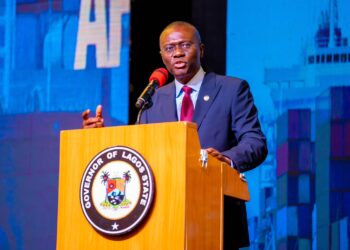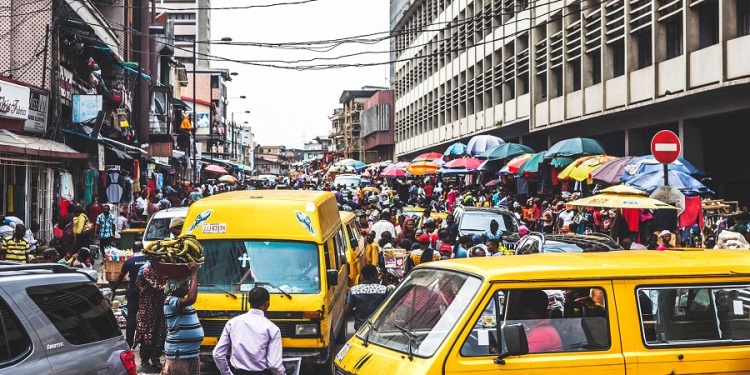The risks to the Nigerian economy have been clear for a while now. Prior to the oil price collapse, it was clear the dominance of crude oil in terms of exports was a risk. That, and the governments reliance on earnings from crude oil. The goal, therefore, was to minimize that risk by diversifying the export base to include more than just crude oil, as well as diversifying government revenue.
To that end, growth in the non-oil sector was of paramount importance. There were other spill-over effects. The oil sector is notorious for not really creating jobs. Dealing with unemployment also required growth in non-oil sectors, specifically with sectors that lean toward labour, and in our specific case, low skilled labour. So, sectors like manufacturing, construction, and agriculture were very important.
The crude oil price crash brought all those risks to the fore and to some extent we saw the consequences. The policy choices aside, the economy was always going to go through some pain as a result. The crisis however brought with it the opportunity for reform. Reforms that improved productivity growth in key non-oil sectors, specifically reform that would have been difficult to swallow during normal times. This is, of course, presuming that the right set of macroeconomic policies were implemented. The economy would have taken a hit regardless, but the icing on the cake would have been a recovery that was strong and set the economy on a good growth trajectory.
I’m not going to go into the reality of how we responded to the crisis. From a macroeconomic perspective, we chose to sacrifice all at the alter of the exchange rate. From a general economic policy perspective, we basically did nothing while waiting for the oil price to recover. OK, we didn’t exactly do nothing although the things we did might have been counter-productive. The war on trade, the intervention-fund-fuelled monetary expansion, government crowding out the private sector with its debt program, to name a few. Then again we passed the doing business exam, but still. My fear was that, even though we would exit recession, the policy cocktail implied that we would stumble along with no growth for a while.
The latest GDP numbers do nothing to assuage that fear. Although the economy grew in real terms, if you strip out the oil sector then there was actually a contraction. More worryingly, in sectors which actually create jobs, like manufacturing, construction, and trade, the contraction is apparent. Agriculture grew but at a slower rate than it did in 2015 and 2016 during the peak of the crisis.
To be clear, it is always dangerous to make statements off one data point, but looking at the trend in non-oil growth, it does appear that have entered a period of no growth. If you add the fact that population is growing at around 2.9 percent, then no-growth in the non-oil sector should be very worrying to all.
So what do we do about it? The truth, in my opinion, is the window for serious policy reform is closed until 2019. To ask any government to implement serious reform now is to ask that government to commit electoral suicide, and governments typically do not do that.
Reforms that we need
But just in case anyone is in the mood then here are three places to start. First, there needs to be a strategy change with respect to financing infrastructure. The current strategy of government borrowing to finance projects is not capable of delivering the kind of improvement in infrastructure that is required, simply because of the scale of investments required. The focus has to switch to driving private capital into infrastructure.
Secondly, the government needs to rethink its exertions on the financial sector. Credit to the private sector has been flat or declining since mid-2016 and that is largely due to the governments debt program. Crowding out as we call it. It is difficult to for an economy to grow without credit. The plan to retire some debt instruments with the Eurobond proceeds is a good one but the government needs to seriously rethink its deficit financing strategy. Banks and other financial institutions will need to leave their risk-free debt purchasing business, or shashe banking as a friend calls it, and return to lending to the real sector. And no, issuing debt to distribute via low-interest intervention loans in not a solution.
Finally, people need more economic freedom. It might sound trivial but the freedom to do things is a fundamental part of economic activity. The freedom to trade (internationally), the freedom to buy and sell foreign exchange, the freedom to move stuff up and down without harassment or unnecessary taxation, the freedom to pursue productivity growth even if it means you have to import all the ingredients for your jollof rice. Note that I am NOT asking for complete free trade, but the government needs to seriously rethink its trade strategy.
These three things can be done within the next twelve months, and if they are we should see a pickup in non-oil growth. The benefits of being in recession is that you get the policy urgency to do things to turn the ship around. Being a no growth economy though, that is perhaps an even more difficult thing to get out of.
Nonso Obikili is an economist currently roaming somewhere between Nigeria and South Africa. The opinions expressed in this article are the author’s and do not reflect the views of his employers.



















